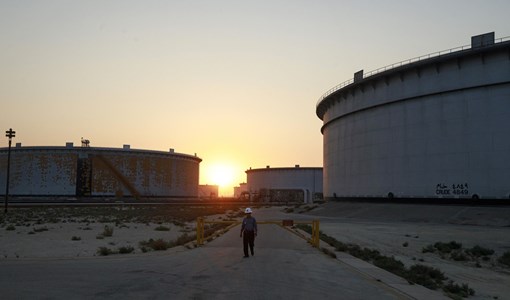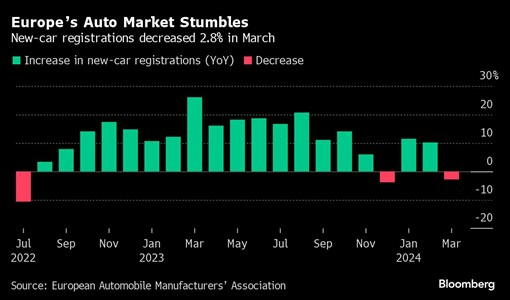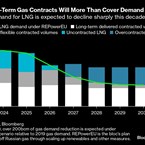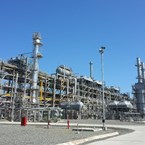IEA sees largest drop of oil demand in history in 2020
The International Energy Agency (IEA) said in its monthly oil market report that it expects the fall in oil demand this year to be the largest in history. Demand was expected to fall by 8.1 million barrels per day in 2020, before growing by 5.7 million barrels per day in 2021.
The IEA said oil demand in the second quarter, which saw the greatest impact from lockdown measures, was 17.8 million barrels per day lower when compared to the same period last year. New data showed that demand destruction in the early part of the year was slightly less than expected, although still unprecedented.
The IEA’s forecast for oil demand in 2020 is 91.7 million barrels per day, nearly 500,000 barrels higher per day than it expected in May, due to stronger-than-anticipated deliveries during the coronavirus lockdown. In China, oil demand recovered fast in March-April and India’s demand rose sharply in May.
"Even so, demand in 2020 is expected to be 8.1 million bpd lower than in 2019, with the biggest declines seen in the first half of the year. Our first forecast for 2021 as a whole shows demand growing by 5.7 million bpd, which, at 97.4 million bpd, will be 2.4 million bpd below the 2019 level. This gap between 2021 and 2019 is largely explained by the dire situation of the aviation sector," the reported highlighted.
The IEA said in its report that while the oil market remains fragile, the recent modest recovery in prices suggests that the first half of 2020 is ending on a more optimistic note.
On the supply side, the IEA stated: "Record output cuts from OPEC+ and steep declines from other non-OPEC producers saw global oil production fall by a massive 12 million bpd in May. After tumbling by 7.2 million bpd in 2020, global oil output is set for a modest 1.7 million bpd recovery in 2021, assuming OPEC+ cuts ease.”
In conclusion, the IEA said: "In sporting terms, the 2020 oil market is now close to the half time mark. So far, initiatives in the form of the OPEC+ agreement and the meeting of G20 energy ministers have made a major contribution to restoring stability to the market. If recent trends in production are maintained and demand does recover, the market will be on a more stable footing by the end of the second half."
KEEPING THE ENERGY INDUSTRY CONNECTED
Subscribe to our newsletter and get the best of Energy Connects directly to your inbox each week.
By subscribing, you agree to the processing of your personal data by dmg events as described in the Privacy Policy.
More oil news

Oil Erases Gain as Traders Weigh Israeli Response to Iran Attack
Apr 16, 2024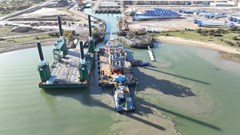
Kent confirms enhanced project alliances with ExxonMobil and Repsol Norge
Apr 16, 2024
Mexico’s Sheinbaum Plans to Spend Billions on Gas, Solar Plants
Apr 15, 2024
What’s Next for Crude Oil? Analysts Weigh In After Iran’s Attack
Apr 15, 2024
Oil Traders Weigh Risks of Iran-Israel Conflict in Tight Market
Apr 14, 2024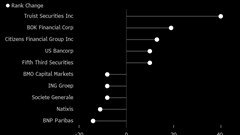
US Regional Banks Dramatically Step Up Loans to Oil and Gas
Apr 14, 2024
Oil Rises to October High as Israel Prepares for Iranian Attack
Apr 12, 2024
Gold Hits New Record, Oil Rises on Mideast Tension: Markets Wrap
Apr 12, 2024
Oil Swings Near $90 With Risk of Iran Strike on Israel in Focus
Apr 11, 2024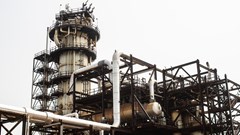
Oil Holds Two-Day Loss as Report Points to Rising US Inventories
Apr 10, 2024
Energy Workforce helps bridge the gender gap in the industry
Mar 08, 2024
EGYPES Climatech champion on a mission to combat climate change
Mar 04, 2024
Fertiglobe’s sustainability journey
Feb 29, 2024
Neway sees strong growth in Africa
Feb 27, 2024
P&O Maritime Logistics pushing for greater decarbonisation
Feb 27, 2024
India’s energy sector presents lucrative opportunities for global companies
Jan 31, 2024
Oil India charts the course to ambitious energy growth
Jan 25, 2024
Maritime sector is stepping up to the challenges of decarbonisation
Jan 08, 2024
COP28: turning transition challenges into clean energy opportunities
Dec 08, 2023
Why 2030 is a pivotal year in the race to net zero
Oct 26, 2023Partner content

Ebara Elliott Energy offers a range of products for a sustainable energy economy

Essar outlines how its CBM contribution is bolstering for India’s energy landscape

Positioning petrochemicals market in the emerging circular economy

Navigating markets and creating significant regional opportunities with Spectrum





